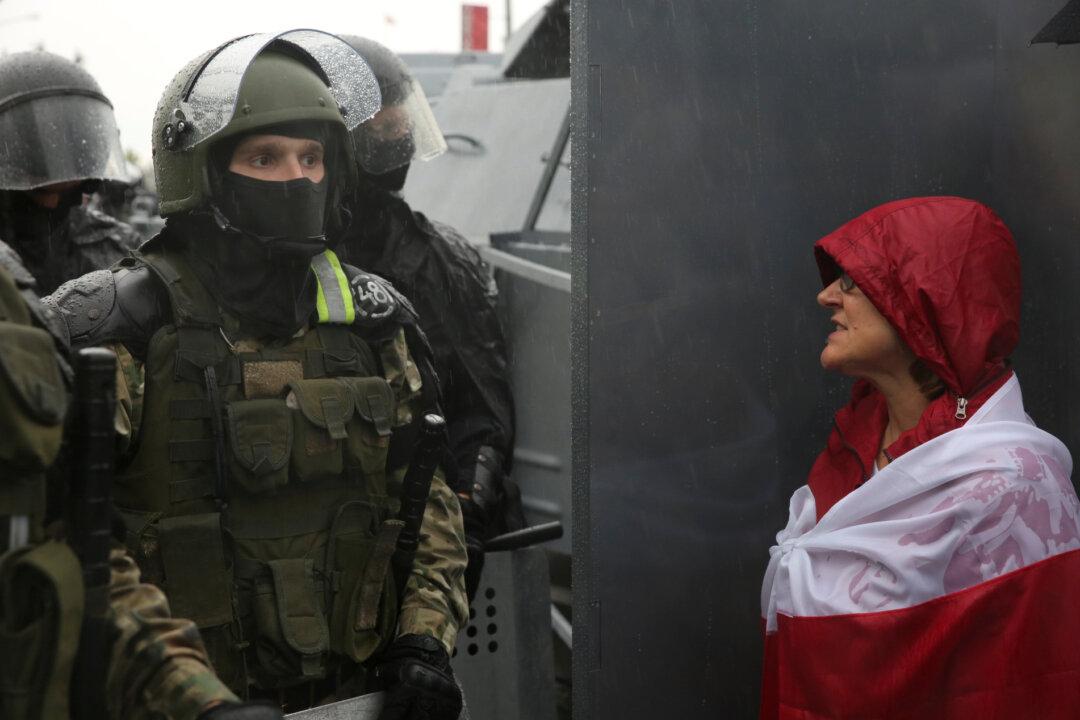Tens of thousands of people marched through Minsk on Sunday calling on Belarusian President Alexander Lukashenko to step down, in mass demonstrations that showed no sign of abating nearly a month after an election his opponents say was rigged.
Columns of protesters defied a government warning to march in front of soldiers and military vehicles. They waved red-and-white opposition flags and shouted “go away!” and “you’re a rat!”.





